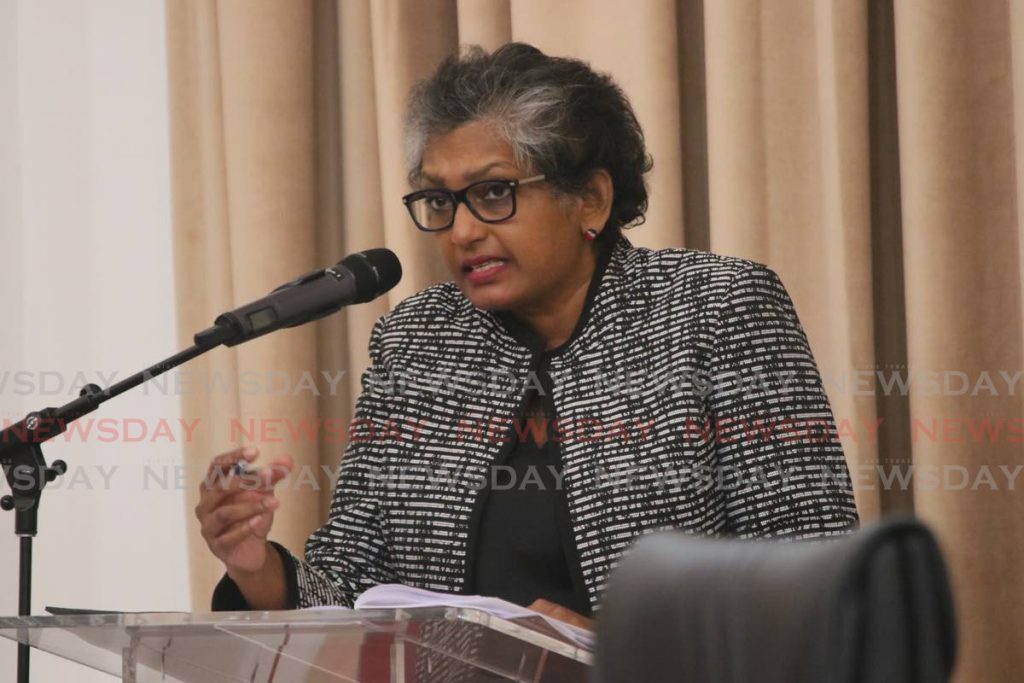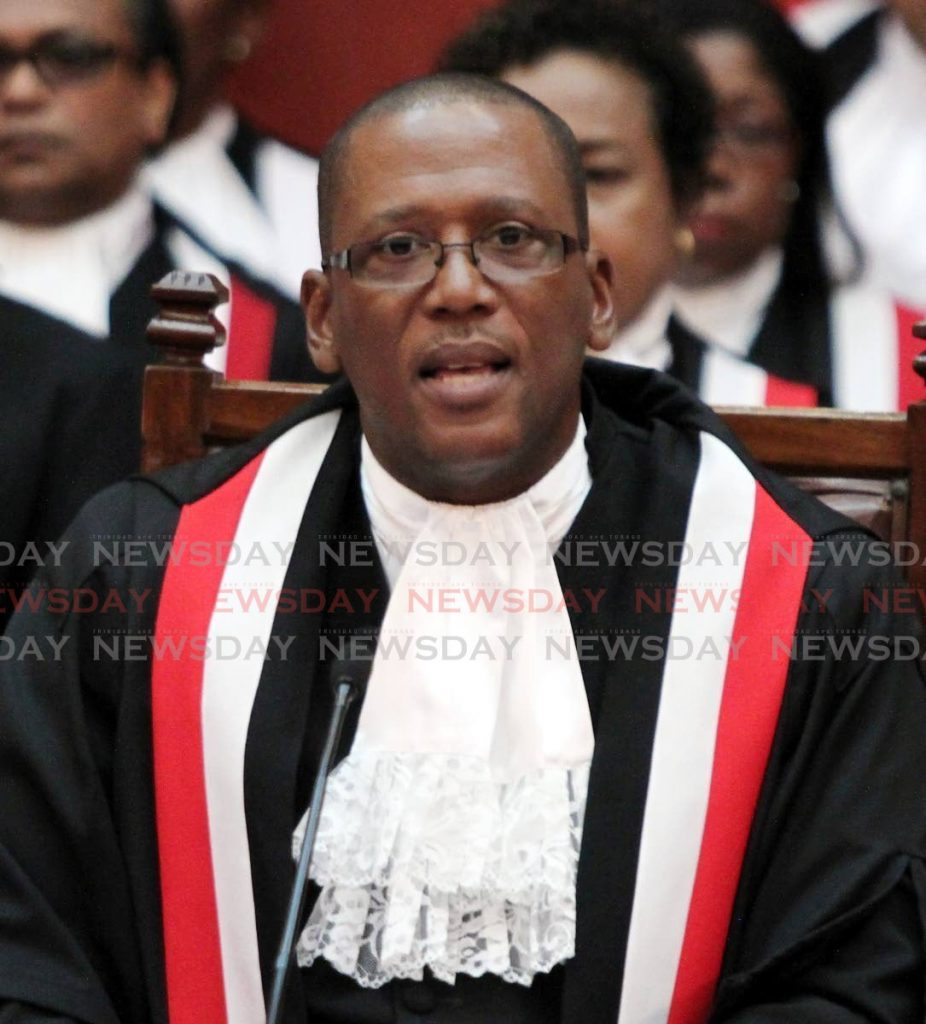Chote challenges CJ's ban on in-person trials

A LEGAL challenge to the Chief Justice’s covid19 emergency practice directions, which ban in-person hearings, has been mounted by a man who is before the court on a corruption charge.
New practice directions came into effect on Monday and direct judges and magistrates to adjourn cases if it is impossible to try them electronically.
Rajesh Ramgobin, a former police officer who was charged in 2006 on three corruption charges relating to taking a $3,000 bribe, opted in September for a judge-alone trial which was expected to begin virtually on Monday before Justice Lisa Ramsumair-Hinds.
The prosecution, in keeping with a position it adopted in July that the Office of the Director of Public Prosecutions will not be used as a courthouse for witnesses to give evidence, filed submissions asking for an in-person hearing.
In a separate objection, Ramgobin’s attorneys Sophia Chote, SC, and Peter Carter are challenging the court’s authority to hear the trial electronically.
Chote said on Thursday the defence had previously asked for the prosecution’s main witness to be cross-examined face-to-face, while acknowledging that there was no absolute right to a confrontation.
Chote said while other aspects of the trial could have proceeded by electronic means, after looking at the practice directions and the legislation on taking evidence by video link in criminal trials, she realised certain amendments to the Evidence Act had not been passed in Parliament and proclaimed, as the bill had lapsed.
Chote said no emergency legislation was enacted and assented to that would allow the practice directions to override protections afforded to citizens under the Constitution and in specific legislation.
In her submissions, Chote said while there was no absolute right to confrontation, the abrogation of any right must come from solid legal principles and legislation.

She said rules of the court, such as the practice directions, can be treated as delegated legislation, but the emergency covid19 practice directions did not have the same status in law. While the Evidence Act, she argued, permitted the rules committee to provide rules for criminal cases, no power was specifically delegated to the Chief Justice to give directions on how the court should take evidence.
“The Constitution cannot be overwritten by normal statute unless passed by a constitutional majority,” she submitted, adding that the avenues currently open for evidence by video link come from enacted laws.
Chote said practice directions are low in the hierarchy since Parliament has not conferred on the Judiciary, or the Chief Justice, the power to make practice directions to change the way a trial is held.
“That Parliament itself took steps to have it changed by statute is an indication that Parliament held the view that if these rights of due process had to be affected, (they) had to be changed by legislation.
“There is no legislation. Parliament cannot delegate its duty in this regard,” she said, adding that there was a greater burden on the courts to give primacy to the Constitution in TT.
She added that even the common law did not give the court inherent jurisdiction to permit video hearings, particularly for cross-examining witnesses, because of the primacy of the Constitution.
“There were special circumstances in common law that permit video evidence in special cases.
"Can we rely on the practice directions to do what we want to do? We can’t.
"What ought to have been done is, you pass emergency legislation. But certainly, between February and March this year, legislation could have been passed.
“If this practice direction were to say it must be followed, what the court would be doing is making law.
"It is not that we don’t want to try something new,” Chote said. “We have to adapt and move forward, but we have to make sure we do so lawfully.”
In the defence’s oral submissions, Ramsumair-Hinds questioned if past trials, held both during the pandemic and previously, which allowed for witnesses to give evidence by video link, were legal.
“What are your views on the legality of those proceedings?” she said as she asked for further submissions, supported by authorities, on the issue. The judge will give her ruling on the applications by both the defence and prosecution on the way the trial should be held on November 19.
Earlier in the sitting, the judge disclosed that the special room at King’s Court on Frederick Street, Port of Spain, had been outfitted for witnesses to give evidence at the trial.
In recent times, there have been several objections to the covid19 practice directions which ban in-person hearings and have halted jury trials indefinitely.
Ramgobin was participating in his trial from home, as he is on bail.
The State is represented by state attorney Maria Lyons-Edwards.


Comments
"Chote challenges CJ’s ban on in-person trials"